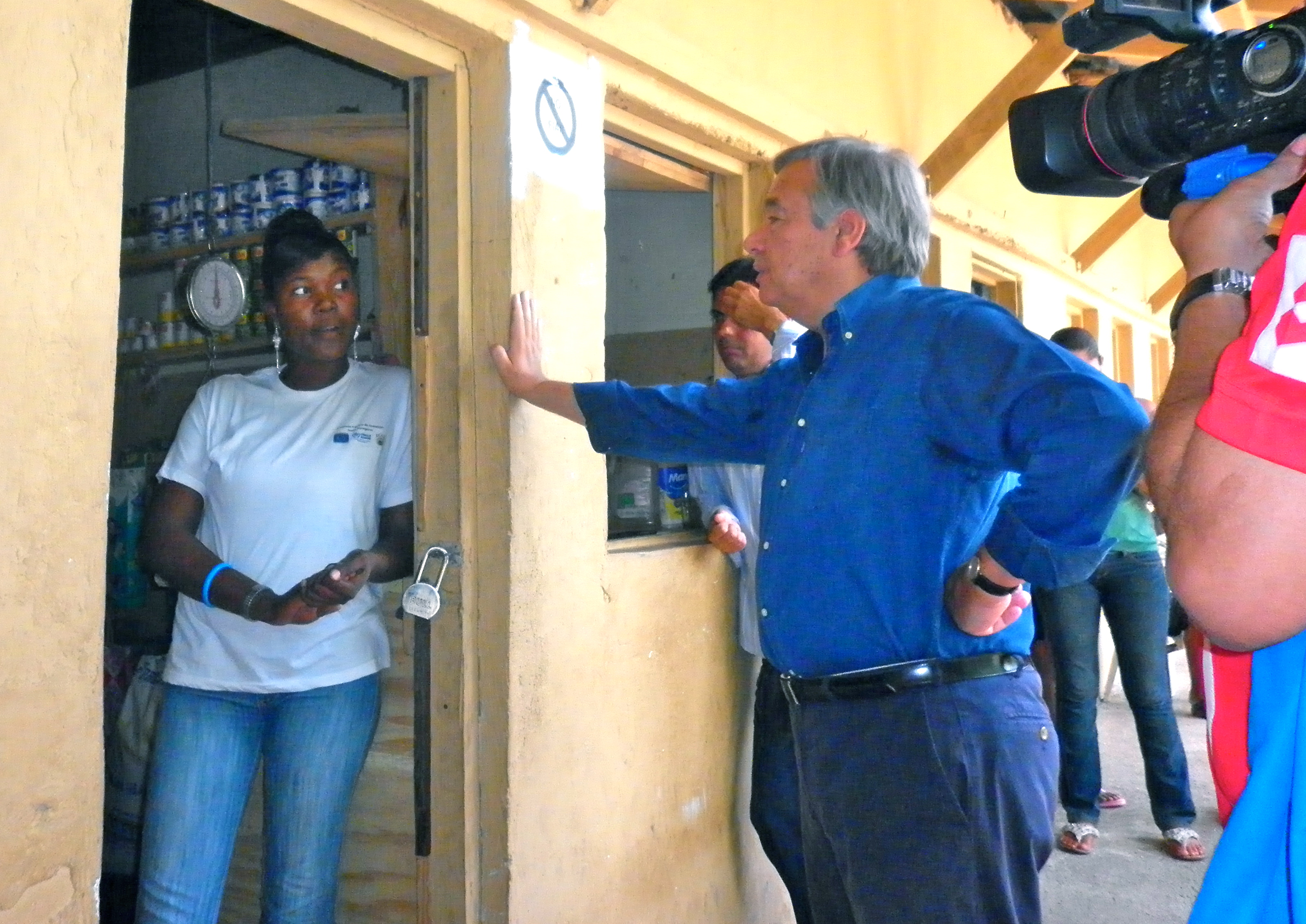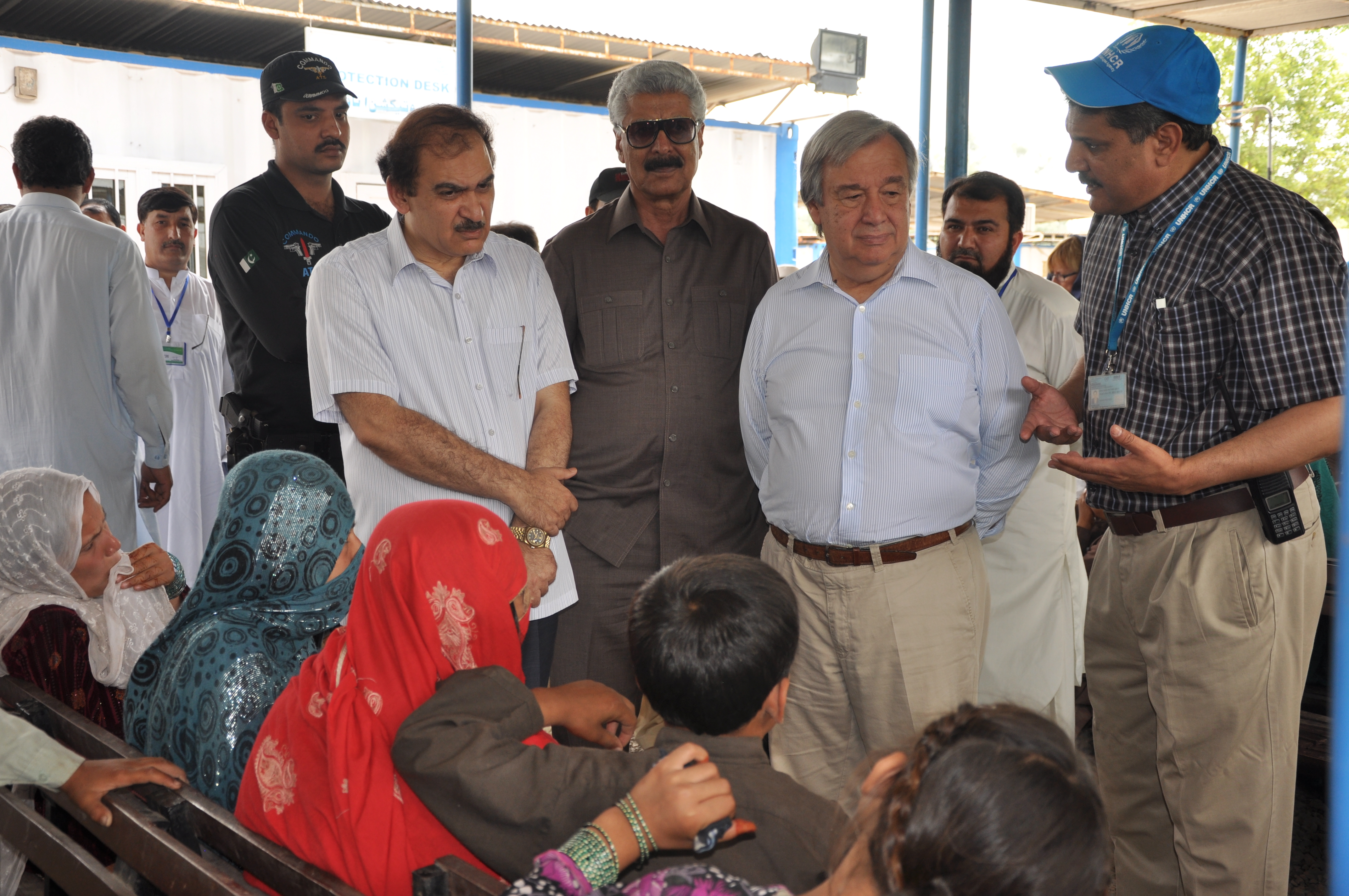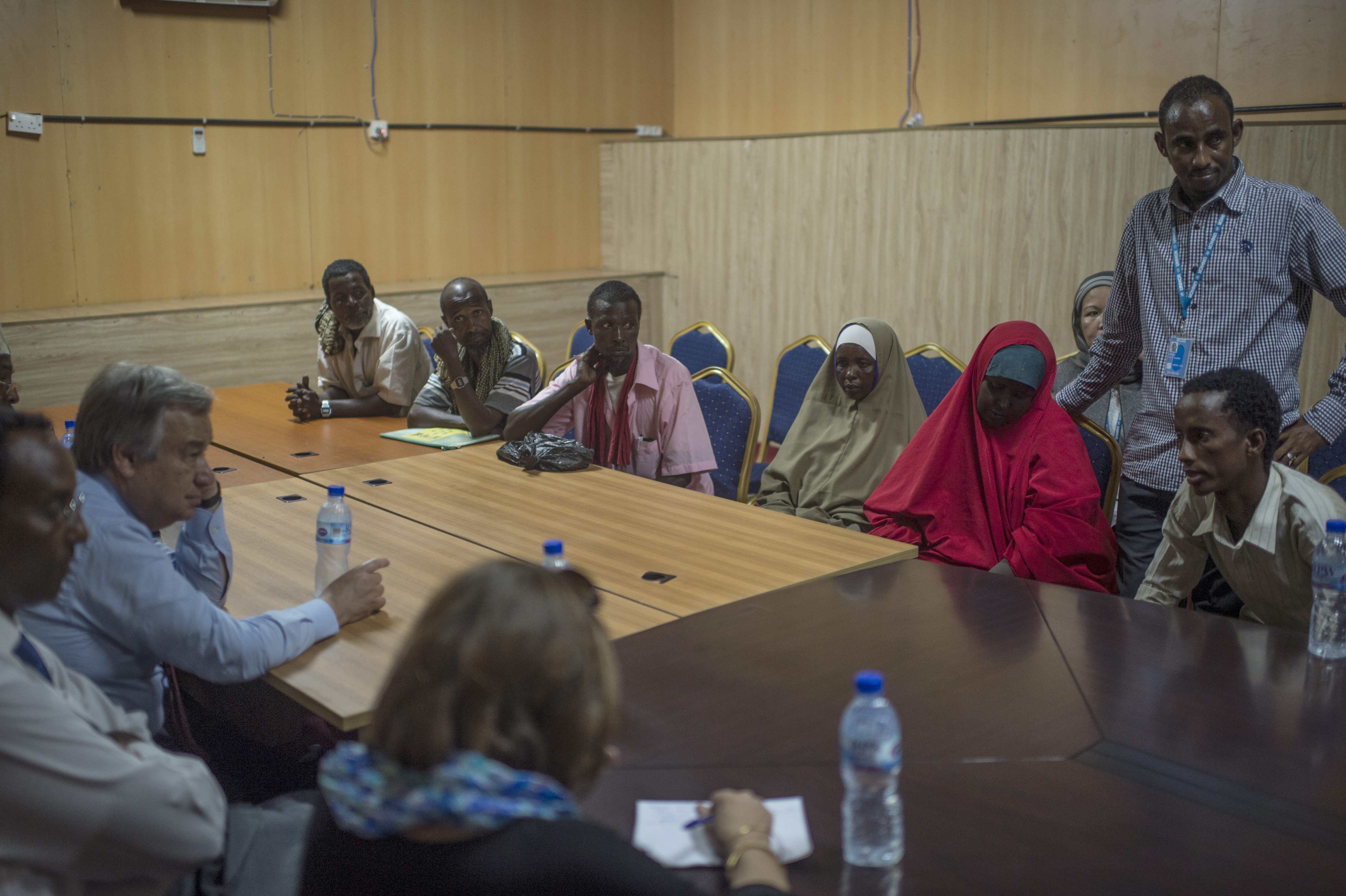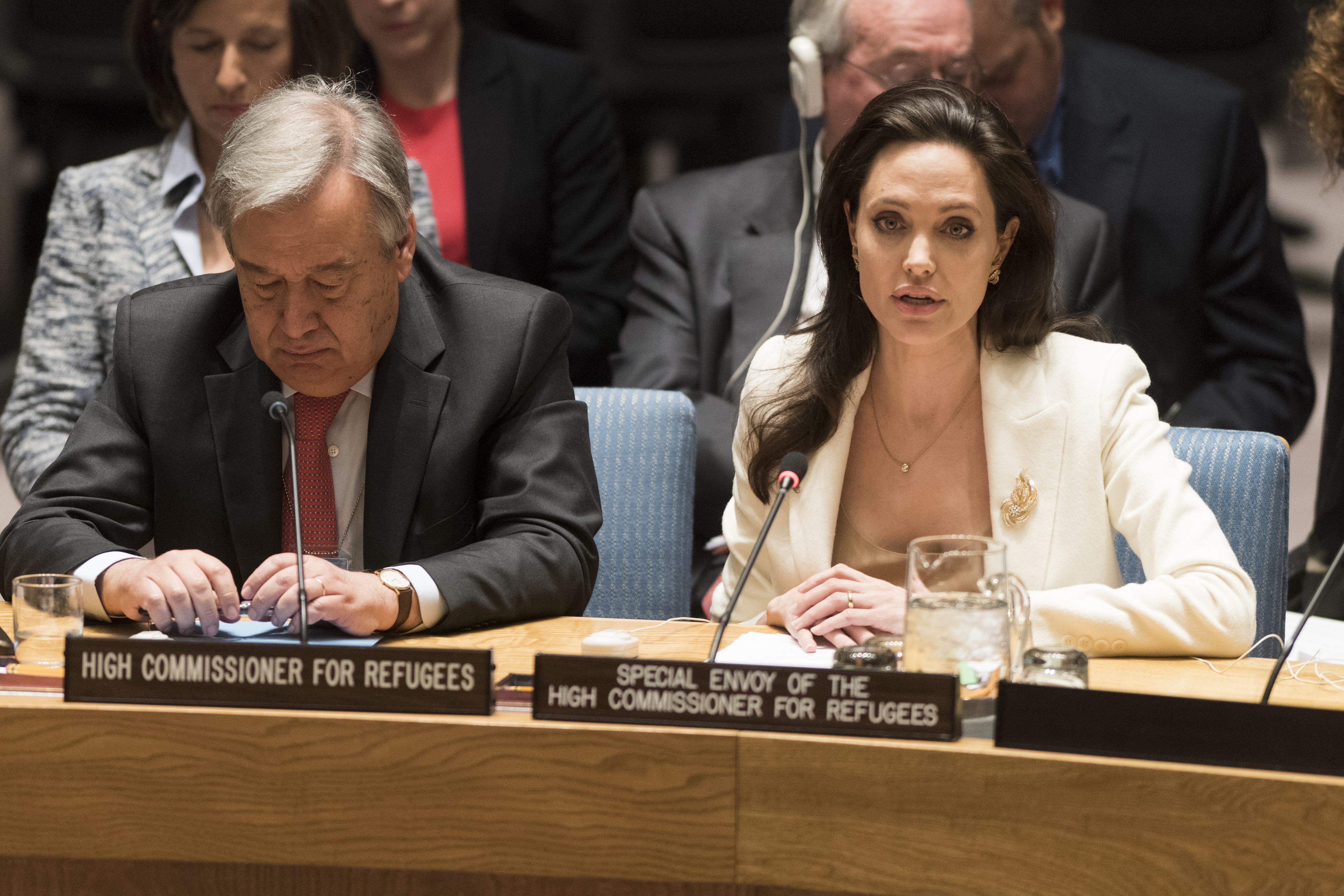High Commissioner for Refugees visits UNHCR operations in Dominican Republic
High Commissioner for Refugees visits UNHCR operations in Dominican Republic

SANTO DOMINGO, Dominican Republic, September 7 (UNHCR) - UN High Commissioner for Refugees António Guterres has visited the Dominican Republic for the first time, meeting top officials, visiting UNHCR projects and meeting people of concern to the refugee agency in the Caribbean nation.
During his visit on Tuesday, Guterres met several young people of Haitian descent who have faced problems getting copies of their civil documentation. They told him of the difficulties they have in leading a normal life. The High Commissioner also discussed the issue with President Leonel Fernández in the Dominican capital, Santo Domingo.
One young man, 22-year-old Teófilo, said he was born in Santo Domingo and has spent all his years in the Dominican Republic. But his parents came from Haiti and he feels a strong attachment to both the neighbouring nations - like many other young people here of Haitian descent.
He grew up feeling he was Dominican. "When I hear merengue, my feet tremble and I feel my soul leaving my body," he told Guterres, referring to the most popular style of music in the Dominican Republic. The young man looked forward to going to university.
But he fell foul of 2007 administrative directives on civil documentation. Teófilo told Guterres that he applied for a copy of his birth certificate in 2008 so that he could register for college. Instead of being allowed to matriculate, his case was placed under investigation by the national authorities. The High Commissioner met other young people with similar tales.
"It was very important for me to have this conversation and see what UNHCR can do for these people who want to continue to be recognized as nationals of the country where they were born, and how we can support the Dominican authorities in this task," said Guterres, who last month launched a global campaign to reduce statelessness.
Under the current regulations, even though many people like Teófilo have been registered at birth and given Dominican ID cards, civil registry officers cannot issue, sign or copy birth certificates for individuals whose parents have not proved their legal status in the Dominican Republic. That's the position Teófilo found himself in - and there are many other similar cases. Without a birth certificate, they will not be recognized as nationals or gain access to all the rights that come with it.
During his visit with President Fernández, the High Commissioner encouraged him to develop concrete pledges on asylum and on the prevention of statelessness ahead of a landmark ministerial-level meeting to be organized by UNHCR in Geneva this December.
The total size of the stateless population in the Caribbean region is unknown. However, it is believed that hundreds of thousands of people born outside Haiti to Haitian migrants could potentially be stateless or at risk of statelessness.
In practical terms, being stateless affects access to education, health care and social services. It can also lead to problems finding work, buying a home, travelling and many other things that citizens take for granted.
As he pondered his future, Teófilo told Guterres that he still loves the Dominican Republic, but now feels that this is unrequited. "I was born in Mojarra, in the Dominican capital, but in my heart, in my blood, I carry with me the heritage of my Haitian parents - something I would not disown, because it would be like disowning myself," he said. "I am Dominican, but I am being denied my documents," he added.
During his visit to the Dominican Republic, Guterres also visited the small UNHCR office, which was opened last year. In addition to working with the government on the statelessness issue, the office also supports government efforts to strengthen procedures for refugee status determination. There are around 200 refugees in the country and 350 asylum-seekers, mostly from Haiti.
By Luis Romero and Federico Martínez in Santo Domingo, Dominican Republic







